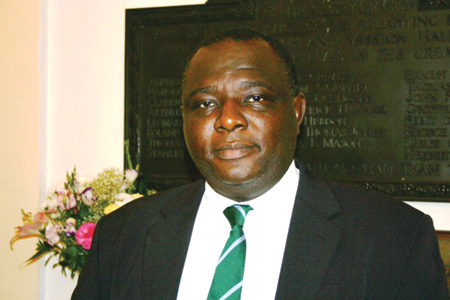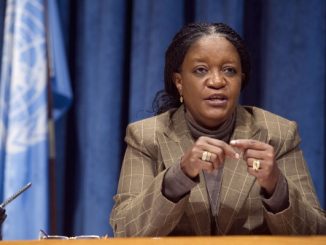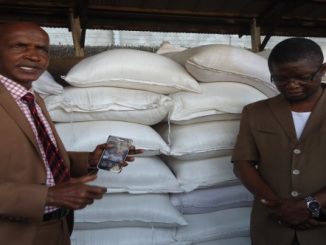
Titus Boye-Thompson
In a recent post to my in-tray came a document titled “My vote, my life – the citizen’s manifesto.” Ordinarily I would shy away from such documents so as not to cloud my judgement but in the interest of being informed, I decided to open the document and peruse its contents. I was also greatly assisted by the Deputy Minister of Information and Communications, Mr Cornelius Deveaux in his responses to questions about this very same document on Radio this week. The presumption that governments must be instructed by their citizens about the mechanisms of coming to power turns the very context of citizen’s politics over its own head. It is for this reason that I felt it would be a good exercise to engage critically with the Citizen’s Manifesto and to test it for independence and robustness.
The allegation that the Citizen’s Manifesto is a recipe for regime change is not easily determined by a first reading of the document until the context of the forward is taken in its full throttle. The forward was carefully penned by two men of high religious status and thus their association with the document evokes a religious neutrality that confuses the notion of morality with salvation. In politics, both these contexts are out of place and cannot be imposed on an unwilling audience. Sheikh Alhaji Abubakarr Conteh, President of the inter-religious Council hailed the Citizen’s Manifesto as “the joint will and commitment of all classes of citizens to support political parties with concrete ideas that will help their candidates be more responsive to citizen’s aspirations. “ Nothing can be further from the truth even when it is clear that the cleric is trying very hard not to be too controversial. The narrative is too naïve to inject the allusion of political parties as rudderless mechanisms devoid of any contact of affiliation with the generality of the electorates. The cleric claims a moral high ground in a matter that has for some while been better administered without theological presumptions because the separation of the religious class from the state was the one single act that transferred power from the oligarchy created by the union of Church and State to the supremacy of the proletariat class of ordinary people. It is also through the tenets of democracy that the principle of one man one vote becomes a natural tendency to identify and select political leaders as the arbiters of social and economic advancement in the modern era.
His Grace, Dr Edward Tamba Charles, Arch Bishop in the Archdiocese of Freetown also resonate the civility of morality and rectitude to which only God fearing men would ascribe. His intonation of an awareness by religious and civic leaders of their “sacred duty to guide our secular leaders spiritually and prepare them to serve mankind in the fear of God and to do what is right for humanity,” addresses the very connotation that the political decisions that the country faces has something to do with a moral question or otherwise an entitlement that is presumably based on a sharing or distributive framework. Political power in this sense would have to be dealt with by rotation or by a predetermined time sequence. This connotation is a recipe for regime change but one that provides no practical rationale for such evasive intervention into the private considerations that people are wont to take in determining their political preferences.
In consideration of the above, it is clear that the sponsors of this Citizen’s Manifesto are misconstruing the true relationship between the citizen and those they would choose to represent them. This country already has several tiers of government, from local Ward Councillors to Parliamentary, Mayoral and Presidential Executive spheres. In all of these levels of political authority, the citizen’s participation is clearly agreed and mandated by existing laws and edicts. To presume that the Citizen’s Manifesto is a pejorative of political participation is misleading in the least and at worst mischievous.
The Citizen’s Manifesto highlights seven standards demanding specific performance on matters they have assessed to be principled points for good governance. The absence of political will or the importance of existing laws and how they impact on these standards were unseen in the presentation. The issue of asset declaration for example goes to the matter of probity in public life. Nowhere in the World would a private person be expected to announce the source and application of their wealth when it is clear that they are not involved in any criminal enterprise. The right to privacy is a fundamental aspect of human freedoms and any obligation imposed on a private person to declare their assets before assuming public office is contradictory to that very right to privacy. In any event, those already in public life are expected by force of good reasoning to have met the asset declaration provisions if they are furthering their political aspirations to higher level. The rubbishing of this provision by Deputy Minister Cornelius Deveaux highlighted the creeping politicization o civil society and his call that the sponsors of this document must come out as politicians was well in place.
On a more general assessment, almost all of the seven priority areas or resolutions are very far from being new ideas or innovative thinking. The precepts of the current APC government enshrined in the Agenda for Change and the Agenda for Prosperity are underpinned by the very resolutions in the Citizens’ Manifesto. For example, the call for increasing women’s participation in political office, the inclusion of young people and people with disabilities in positions of influence and authority and the considerations for profit sharing in agricultural and mining contracts are active areas of interventions by this government. President Ernest Bai Koroma has been hailed a visionary for enhancing the status of women in public and diplomatic life, appointing women to top positions in the diplomatic service, in Government positions such as the presumptive four generals viz; Auditor General, the Registrar General, the Commissioner General of the NRA, and the Brigadier General. Alongside these many firsts for women in predominantly male dominated environments such as the Chief Justice, appointments of young people and people with disabilities have permeated many areas of public life. The creation of infrastructures to support youth participation in the political sphere has also ben robust with the Youth Commission, the Ministry of Youth and a Presidential Youth Aide providing input into strategic policy development and engagement. It is lamentable that those who drafted this document failed to take all these accomplishments to note before coming up with such a one sided and depraved view of a functioning and progressive regime.
There is always the deception of public perceptions when civil society usurps the moral high ground as if they act as the moral conscience and advocate for social rights and equality. What is not immediately conveyed by the agitation of social activism is the economic infrastructure that underpins political agitation. Those who have something to gain from upsetting a political dispensation are invariably more effective within a social construct because the line dividing politics and social agitation is not a clear blue line. Social activism is easily fabricated as a cover for political advancement or to engage within the political arena without being seen to be partisan. The methodologies for advocacy and social change is never the same for every society thus when a particular type of social activism is introduced without due regard to local conditions is bound to fail. In Sierra Leone, the politics here is local and bi-partisan. Governance has always been by collusion of the main political entities. The environment for the type of political intervention that a Citizen’s Manifesto could usher does not exist, It would have been better if the resources deployed on this exercise were targeted at developing a COMPACT – a better attempt at getting government to do the bidding of the Citizens and at the same time asking for the Citizens to be responsible for their immediate environments and pay obeisance to the general laws and edicts that govern them. For example, in exchange for the Citizens dumping their waste in a responsible manner, government would enjoin to provide better municipal waste recycling and disposal services.
The disappointment for civil society is that the government of President Ernest Bai Koroma is already on record as the only government that has engaged Sierra Leoneans in such a wide ranging discussion during the Citizen’s Conference held in Freetown a while back and one of that Conference’s resolution was to establish a Citizen’s Committee which the government has done and to which the indomitable Mr Foday Morris is the Secretary. This has always been a delivering government. Civil Society is really playing catch up here, unless they still want to be the architects of a failed attempt at regime change. This is not the time for that!



